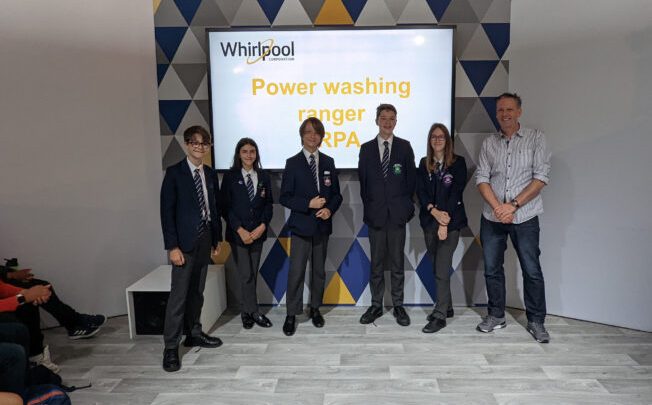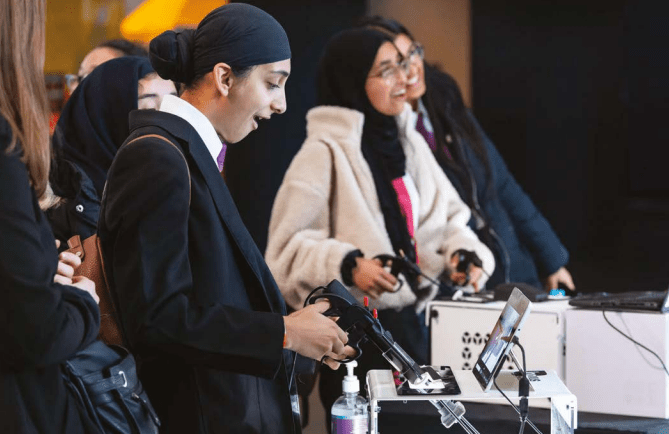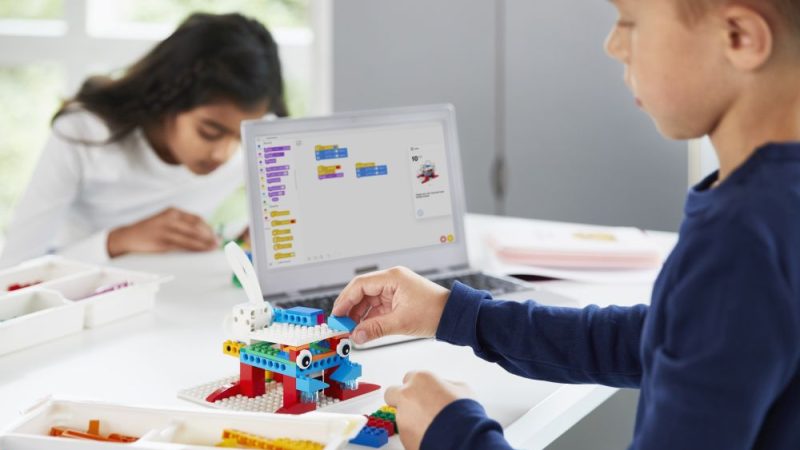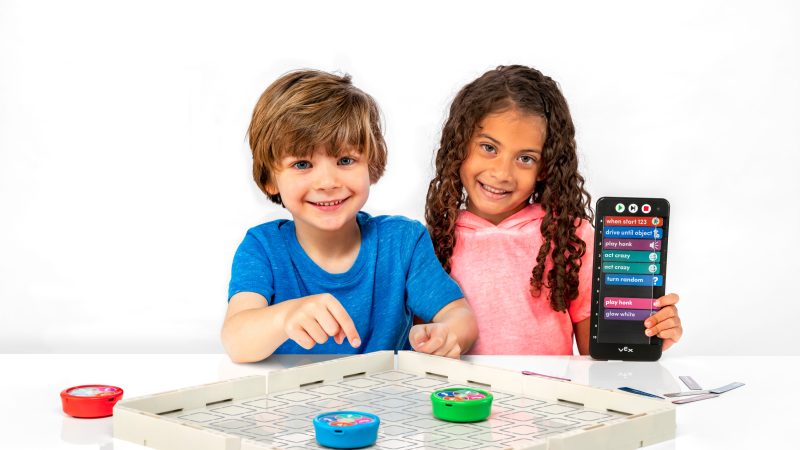Product innovation – Thinking creatively about sustainability

Ian Moverley outlines why young people can teach industry a lesson or two when it comes to innovation…
- by Ian Moverley

“If it’s colder underground, why don’t you build a fridge underneath the kitchen to save energy?” That was one of many ideas presented by groups of 11- to 13-year-olds at the inaugural Whirlpool Purposeful Innovation competition, held in June 2022.
The challenge set to students was to redesign a tumble dryer, washing machine or fridge/ freezer so that it could be manufactured in a more environmentally friendly way, result in less energy/ water consumption or help reduce consumer food waste.
Following a launch event hosted at Whirlpool’s Peterborough showroom, where students learnt about the inner workings of kitchen appliances and their environmental impact, the participating students – all in Y7 to Y9 – had just over eight weeks to complete their design proposals, working in teams of up to five.
The live final then saw the teams present their ideas and designs to a judging panel drawn from the company’s product design, engineering and marketing departments.
Creative, yet practical
The purpose of the competition was to inspire the next generation to think innovatively and creatively about how we can build a more sustainable future, while opening their eyes to what might otherwise be seen as ‘uninspiring’ career paths into kitchen appliance design and manufacturing.
The result? A sea of creative, yet practical ideas that could really teach the industry a lesson when it comes to product innovation.
As well as the aforementioned underground, energy-saving fridge, other ideas included a fridge with a recycled glass front, so that consumers could easily check the food inside without opening the door, letting out cold air and wasting power; a revolving fridge that positioned the oldest food items at the front so that they can be used first; and a new food storage device created using a biopolymer gel, for storing and cooling items without using any energy.
The overall winning entry, ‘Team Power Washing Ranger’ from Sir Robert Pattinson Academy, was a new washing machine equipped with two drums, enabling both a white and coloured wash to be completed at the same time using the same water, with a filter in place to prevent dirt from the ‘white’ wash ending up in the ‘coloured’ wash as the water travelled from an upper to a lower drum.
The idea was chosen as the winner because it was so innovative, yet also purposeful and practical. The team had given thought to how both drums could be powered simultaneously via a cog mechanism, thus requiring no more energy than a standard washing machine.
Beyond the curriculum
Whirlpool’s teams are frequently exploring new ways to minimise the environmental impact of our products and business as a whole, so we recognise the need for fresh product innovation.
Among the skills we’re looking for in our current and future employees are the creativity and the confidence to think beyond established norms.
There’s a whole world of career opportunities available in engineering, and while some might see it as ‘boring’, in reality there is a lot of imagination and innovative thinking involved.
A big part of getting students engaged with STEM is helping them recognise their power and potential to make impact in a real-world context.
The classroom curriculum might be largely focused on theory, but as much as possible, try taking things a step further by showing students how to practically apply that knowledge in practice – creatively, and with purpose.
FIRST® LEGO League
Whirlpool additionally runs two FIRST® LEGO League Challenge tournaments in Bristol and Peterborough. Designed for young people aged 9 to 16, FIRST® LEGO League is another fantastic way of engaging young people in STEM – this time, by challenging them to programme a LEGO robot to complete a series of missions on a themed playing field.
As well as the robotics task, students must also develop an ‘Innovation Project’, where they’re tasked with identifying a problem based on that year’s theme and designing an innovative solution.
The 2022 theme was ‘Cargo Connect’, which revolved around the future of transportation. Students were encouraged to link what they were doing with their robots on the challenge mat, with finding innovative solutions to improving transport infrastructure.
FIRST® LEGO League tournaments take place all over the UK, but if there aren’t any tournaments or similar initiatives running in your local area, a great resource for educators is the STEM Learning website. There, you can find a range of STEM-based resources and activities, apply for funding and connect with local industry ambassadors who can visit your school to support your learning and provide a fresh perspective on the various opportunities available within their industry.
Give students freedom
To help inspire students and get them ready to take part in 2022’s Whirlpool Purposeful Innovation competition, we gave the teams demonstrations of how the components within different appliances work, a presentation on key consumer considerations when buying a kitchen appliance and two videos from our team – one detailing the principles of good product design, and another on the use of sustainable materials.
Students also received a handbook containing the judging criteria and advice on what to focus on during the eight weeks of the project.
Beyond that, they had complete freedom to explore their ideas. They came back to us with detailed research findings into current kitchen appliances and possible material solutions, in-depth overviews of the decision-making processes that led to their product designs, surveys gauging whether people would actually buy the products, and creative presentations of how and why the new products would work within the current consumer context.
It was phenomenal to see the level of detail, teamwork and creativity that went into their projects. I believe that by giving students the freedom to explore their ingenuity through a task such as this, you’ll be surprised at the results too.
Future challenges
For this inaugural Whirlpool Purposeful Innovation competition, we chose to focus the process around the generation of ideas and designs, targeting students in Y7 to Y9, as opposed to Y10/11s studying design and technology at GCSE.
The feedback we received from teachers was that for some students, the competition was a stretch from what they were learning in the classroom, but that the process gave students important opportunities to develop new skills and flex their design and engineering muscles before taking their GCSE options, while building their awareness of paths they might not have previously considered taking.
In future, we may evolve the competition a step further by asking students to actually build a prototype product. This would entail an even greater challenge, but that’s not necessarily a negative. It would certainly help students learn yet more new skills, build resilience and further develop their sense of self-confidence.
Given the extent of the challenges our planet and the people on it now face every day, we need to think differently, beyond the confines of our existing assumptions.
Whirlpool has committed to a set of ambitious 2030 Net Zero targets. Running competitions like Whirlpool Purposeful Innovation not only provides young people with opportunities to explore their creativity and learn more about the appliance industry, but also helps our own internal teams learn something too.
Everyone comes away feeling inspired and motivated to make a positive impact.
Ian Moverley is communications director at Whirlpool Corporation.






